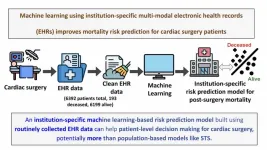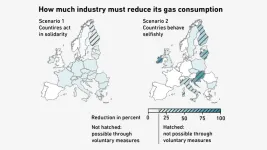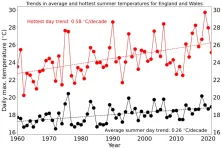The new data-driven algorithm, built on troves of electronic health records (EHR), is the first institution-specific model for assessing a cardiac patient’s risk prior to surgery, thus allowing health care providers to pursue the best course of action for that individual. The team’s work was described in a study published in The Journal of Thoracic and Cardiovascular Surgery (JTCVS) Open.
“The standard-of-care risk models used today are limited by their applicability to specific types of surgeries, leaving out significant numbers of patients undergoing complex or combination procedures for which no models exist,” says senior author Ravi Iyengar, PhD, the Dorothy H. and Lewis Rosenstiel Professor of Pharmacological Sciences at the Icahn School of Medicine at Mount Sinai, and Director of the Mount Sinai Institute for Systems Biomedicine. “Our team rigorously combined electronic health record data and machine learning methods to demonstrate for the first time how individual institutions can build their own risk models for post-cardiac surgery mortality.”
Prediction models based on machine learning algorithms have been generated across diverse fields of medicine, and some have shown improved results over their standard-of-care counterparts. In cardiac surgery, The Society of Thoracic Surgeons (STS) risk scores are considered the gold standard, and are routinely used to assess a cardiac surgery patient’s procedural risk. While they continue to provide important benchmarks for hospitals to evaluate and improve their performance, they are derived from population-level data and therefore may fail to accurately predict risk for specific patients with complicated pathologies who require tailored preoperative evaluations and complex surgeries.
Cardiovascular surgeons and data science specialists at The Mount Sinai Hospital, supervised by co-senior author Gaurav Pandey, PhD, Associate Professor of Genetics and Genomic Sciences at Icahn Mount Sinai, hypothesized that machine learning-based models using EHR data from their own institution could offer an effective solution. So they created a rigorous machine learning framework using routinely collected EHR data to develop a risk prediction model for postsurgical mortality that is both personalized to the patient and specific to the hospital—implicitly incorporating important information about Mount Sinai’s patient population, such as demographics, socioeconomic factors, and health characteristics. This is in contrast to population-derived models like STS, which are based on data from diverse health systems in different parts of the country. Further driving the performance of this methodology was a highly effective open-source prediction algorithm known as XGBoost, which builds an ensemble of decision trees by progressively focusing on harder-to-predict subsets of training data.
Leading the study was co-corresponding author Aaron J Weiss, MD, PhD, formerly a cardiothoracic surgery resident at The Mount Sinai Hospital and a clinical research PhD graduate from Icahn Mount Sinai, who is now at Cleveland Clinic. Arjun Yadaw, PhD, Adjunct Assistant Professor of Pharmacological Sciences at Icahn Mount Sinai, and currently a Senior Data Scientist at the National Center for Advancing Translational Science, part of the National Institutes of Health (NIH NCATS), also co-led the work. These researchers used XGBoost to model 6,392 cardiac surgeries performed at The Mount Sinai Hospital from 2011 to 2016, including heart valve procedures; coronary artery bypass graft; aortic resection, replacement, or anastomosis; and reoperative cardiac surgeries, which have been shown to appreciably increase mortality risk. The team then compared the performance of its model to STS models for the same patient sets.
The study showed that the XGBoost model outperformed STS risk scores for mortality in all commonly conducted categories of cardiac surgery for which STS scores were designed. Prediction performance of the XGBoost model across all surgery types was also high, demonstrating the potential of machine learning and EHR data for building effective institution-specific models.
“Accurate prediction of postsurgical mortality is critical to ensure the best outcomes for cardiac surgery patients, and our study shows that institution-specific models may be preferable to the clinical standard based on population data,” emphasizes Dr. Pandey. “Just as importantly, we’ve demonstrated that it’s practical for health care institutions to develop their own predictive models through sophisticated machine learning algorithms to replace or complement the established STS template.”
This study was funded by grants from the National Institutes of Health.
About the Icahn School of Medicine at Mount Sinai
The Icahn School of Medicine at Mount Sinai is internationally renowned for its outstanding research, educational, and clinical care programs. It is the sole academic partner for the eight- member hospitals* of the Mount Sinai Health System, one of the largest academic health systems in the United States, providing care to a large and diverse patient population.
Ranked 14th nationwide in National Institutes of Health (NIH) funding and among the 99th percentile in research dollars per investigator according to the Association of American Medical Colleges, Icahn Mount Sinai has a talented, productive, and successful faculty. More than 3,000 full-time scientists, educators, and clinicians work within and across 34 academic departments and 35 multidisciplinary institutes, a structure that facilitates tremendous collaboration and synergy. Our emphasis on translational research and therapeutics is evident in such diverse areas as genomics/big data, virology, neuroscience, cardiology, geriatrics, as well as gastrointestinal and liver diseases.
Icahn Mount Sinai offers highly competitive MD, PhD, and Master’s degree programs, with current enrollment of approximately 1,300 students. It has the largest graduate medical education program in the country, with more than 2,000 clinical residents and fellows training throughout the Health System. In addition, more than 550 postdoctoral research fellows are in training within the Health System.
A culture of innovation and discovery permeates every Icahn Mount Sinai program. Mount Sinai’s technology transfer office, one of the largest in the country, partners with faculty and trainees to pursue optimal commercialization of intellectual property to ensure that Mount Sinai discoveries and innovations translate into healthcare products and services that benefit the public.
Icahn Mount Sinai’s commitment to breakthrough science and clinical care is enhanced by academic affiliations that supplement and complement the School’s programs.
Through the Mount Sinai Innovation Partners (MSIP), the Health System facilitates the real-world application and commercialization of medical breakthroughs made at Mount Sinai. Additionally, MSIP develops research partnerships with industry leaders such as Merck & Co., AstraZeneca, Novo Nordisk, and others.
The Icahn School of Medicine at Mount Sinai is located in New York City on the border between the Upper East Side and East Harlem, and classroom teaching takes place on a campus facing Central Park. Icahn Mount Sinai’s location offers many opportunities to interact with and care for diverse communities. Learning extends well beyond the borders of our physical campus, to the eight hospitals of the Mount Sinai Health System, our academic affiliates, and globally.
-------------------------------------------------------
* Mount Sinai Health System member hospitals: The Mount Sinai Hospital; Mount Sinai Beth Israel; Mount Sinai Brooklyn; Mount Sinai Morningside; Mount Sinai Queens; Mount Sinai South Nassau; Mount Sinai West; and New York Eye and Ear Infirmary of Mount Sinai.
END







